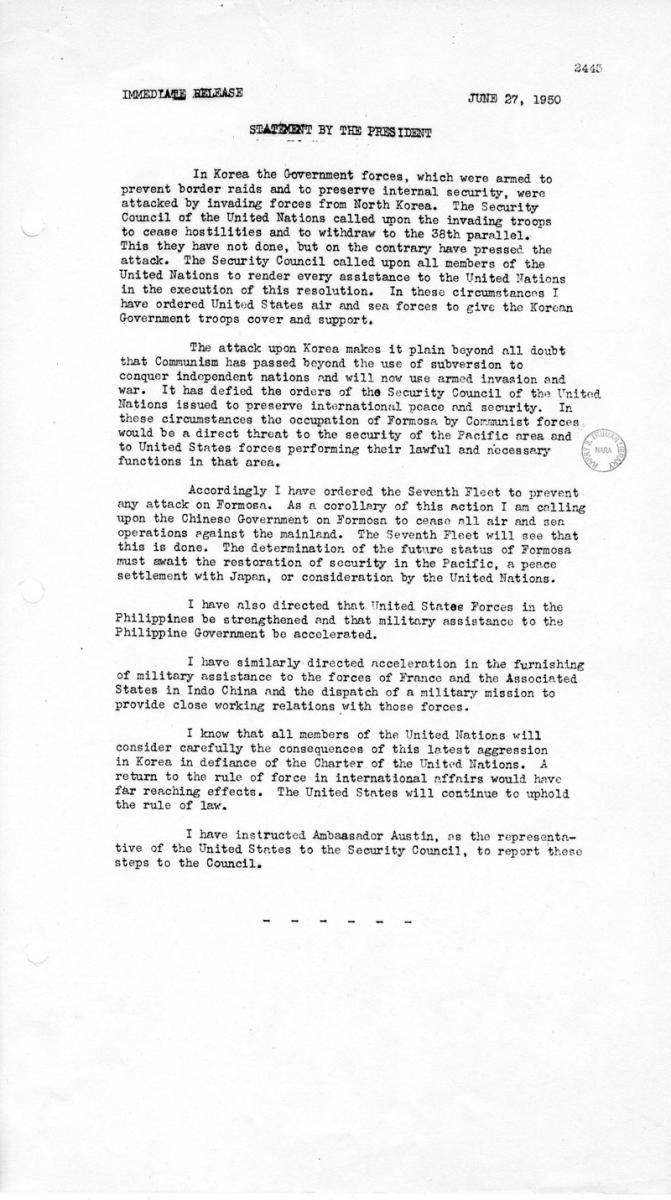Reference



Reference



OpenAI's Answer
Political and Economic Impacts of the Korean War on the United States
Political Impacts:
-
Desegregation of the Military: The Korean War was the first U.S. conflict where troops were desegregated, following President Truman's 1948 executive order source.
-
Military and Foreign Policy: The war marked a significant point in Cold War tensions, with the U.S. taking a firm stance against the spread of communism. This led to a commitment to maintain military forces for global stability source.
-
Impacts on Global Relations: U.S. relations with China worsened due to the war. Additionally, South Korea became a long-term ally and client state of the U.S. source.
-
Military Stalemate: Politically, the war ended in a stalemate with no decisive victory, resulting in long-term military presence on the Korean Peninsula source.
Economic Impacts:
-
Military and Economic Spending: The Korean War led to increased U.S. government spending on military and industrial production, which stimulated economic growth during and after the war source.
-
Financial Cost: The war cost the U.S. approximately $20 billion (equivalent to over $200 billion today with inflation adjustments), significantly impacting the national budget source.
-
Short-term Economic Volatility: Post-war periods saw economic adjustments, including a short recession from July 1953 through May 1954, affecting domestic markets source.
Here is a visual representation of the conflict with U.S. forces in action:

These impacts showcase how the Korean War was a pivotal event that shaped U.S. military, economic policies, and its role on the global stage during the Cold War period.
Follow Up
Related
Lý do chọn đề tài: chứng minh" nhận định hiệu quả kinh doanh bán hàng chỉ thực sự hiệu quả nếu tạo r
How did economic changes influence the population and development of North and South Carolina?
What conflicts arise from the interaction between economic interests and academia?
What are the primary economic activities that support Blumenort's local economy?